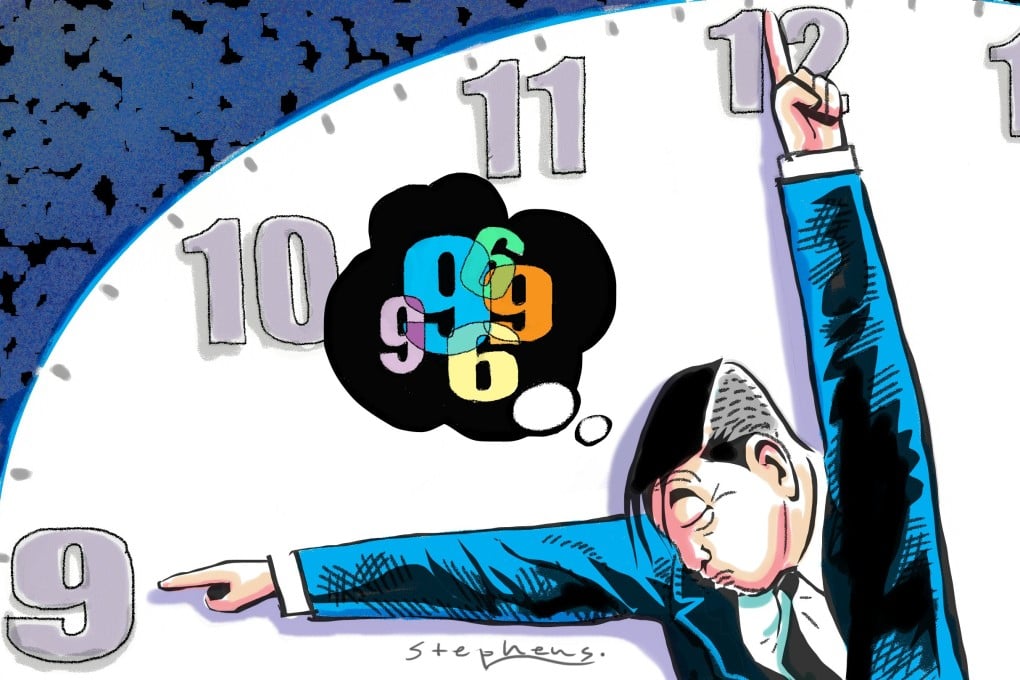Advertisement
Opinion | Why companies should say goodbye to the 996 work culture, and hello to 4-day weeks
- Overwork is counterproductive and economically irrational, and it need not be an inevitable feature of the always-on global economy. Around the world, companies have adopted four-day weeks, or six-hour days, without sacrificing productivity
Reading Time:4 minutes
Why you can trust SCMP

The recent debate over working hours at China's tech companies hinges on a question: are long hours truly necessary, or are they simply exploitation?
Advocates of the 996 work schedule – 9am to 9pm, six days a week – say it places young professionals on a fast, steep learning curve, allowing them to unlock achievements they would have thought impossible. It shows companies which employees are most passionate about and devoted to their work. It is necessary for companies that want to do world-changing work. And in a highly competitive, always-on global economy and job market, long hours are the inevitable price of success.
Yet, every one of those statements is wrong. People and companies can go into overdrive and put in long hours for short periods – think harvest or exam time – but after a few weeks, overtime becomes counterproductive.
Advertisement
Studies of factories have shown workers who try to work 10- or 12-hour days make more mistakes, are more prone to burnout, and are more likely to quit than those who work eight hours. As a result, cumulative disruption to factories can drag their productivity below the level achieved during normal hours. Studies of doctors, nurses and other professionals have found that after long periods of overwork, people are more likely to slip up, cut corners, cheat or mistreat customers and coworkers.
Overworked employees are also more likely to leave and more prone to chronic diseases. Losing highly-skilled workers costs companies time and money, as tasks go unfinished or projects slow while new workers are being recruited and trained.
Advertisement
Advertisement
Select Voice
Choose your listening speed
Get through articles 2x faster
1.25x
250 WPM
Slow
Average
Fast
1.25x
